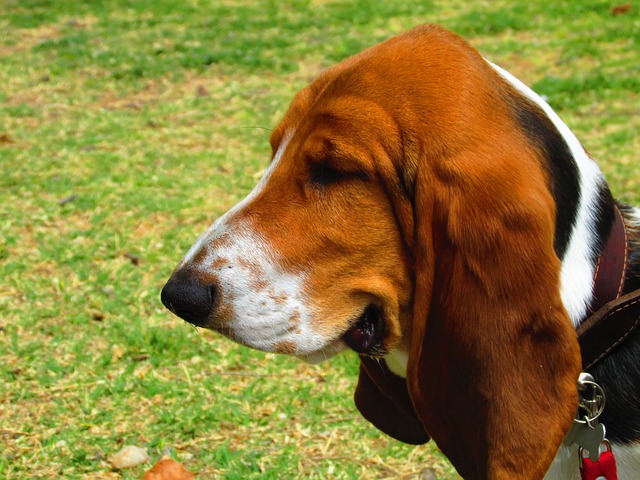


The Basset Hound is a unique and recognizable breed known for its droopy ears, sad-looking eyes, and distinctively long body. These dogs are often described as having a calm demeanor and a strong sense of smell. Originally bred as hunting dogs, Basset Hounds have a keen ability to track scents, making them excellent scent hounds. Despite their hunting background, they are typically gentle, friendly, and affectionate companions, well-suited for families and individuals alike.
The Basset Hound has its origins in France, where it was developed as a smaller version of the Bloodhound for hunting small game like rabbits. The name "Basset" comes from the French word "bas," meaning "low," a reference to their short stature. Basset Hounds were bred to have excellent scenting abilities and were often used in hunting parties to track down game. The breed was later refined and popularized in England. Today, they are more commonly kept as companion animals, though they still retain their strong hunting instincts.
The Basset Hound is a medium-sized dog with a low, stocky body and short legs, which give them their distinctive appearance. They typically weigh between 40 and 65 pounds. Their short, dense coat is usually tri-colored, consisting of black, white, and tan markings, though some may also have other color combinations. The breed’s most striking features are its long, drooping ears and large, sad-looking eyes, which add to their characteristic look. Their long nose is well-suited for tracking scents, and their tail is carried high, often with a slight upward curve.
Basset Hounds are known for their gentle, laid-back temperament. They are typically affectionate with their families, calm with children, and social with other pets. While they can be independent and stubborn, they are not aggressive. Their natural hunting instincts may make them inclined to follow strong scents, so they can sometimes be distracted by interesting smells. Early socialization and training are important to ensure that they are well-behaved and develop a strong bond with their owners. Despite their somewhat melancholic appearance, Basset Hounds are generally happy and good-natured dogs.
While Basset Hounds are not as energetic as some other breeds, they still require regular exercise to stay healthy and avoid becoming overweight. They enjoy daily walks and playtime in a secure yard. Due to their strong sense of smell, they benefit from scent-related activities, like hiding treats for them to find. However, they are prone to laziness and may not always be eager to exercise, so it’s important to keep their activity levels consistent. Basset Hounds should not be over-exercised in hot weather, as their short legs and heavy bodies make them more susceptible to heat exhaustion.
Basset Hounds are intelligent but can be quite stubborn, which makes training them a bit challenging at times. They tend to be independent thinkers and may not always be motivated by food or praise alone. Positive reinforcement techniques work best, as harsh training methods can lead to resistance or a lack of interest. Early socialization is key to ensuring that Basset Hounds are well-adjusted and comfortable around people, other dogs, and different environments. Consistency and patience are important when training them, and they respond best to calm, persistent owners who can maintain a positive atmosphere.
Basset Hounds are generally healthy dogs, but like all breeds, they can be prone to certain health conditions. Common health issues in Basset Hounds include hip dysplasia, ear infections (due to their long ears), obesity, and intervertebral disc disease (a spinal condition). Regular vet check-ups are important to monitor their health. Basset Hounds are also known for being prone to obesity, so maintaining a healthy diet and weight is crucial. Their ears should be cleaned regularly to prevent infections, and their eyes should be checked for any signs of irritation or infection. Despite their low-maintenance coat, Basset Hounds should be brushed occasionally to remove loose hair and debris.
The average lifespan of a Basset Hound is typically between 10 and 12 years, although some can live longer with proper care. Like all dogs, their lifespan can be influenced by factors such as genetics, diet, exercise, and overall health care. Regular vet visits and maintaining a healthy lifestyle are essential to ensuring that Basset Hounds live long and happy lives.
© copyright Dog Compendium 2024 - 2026